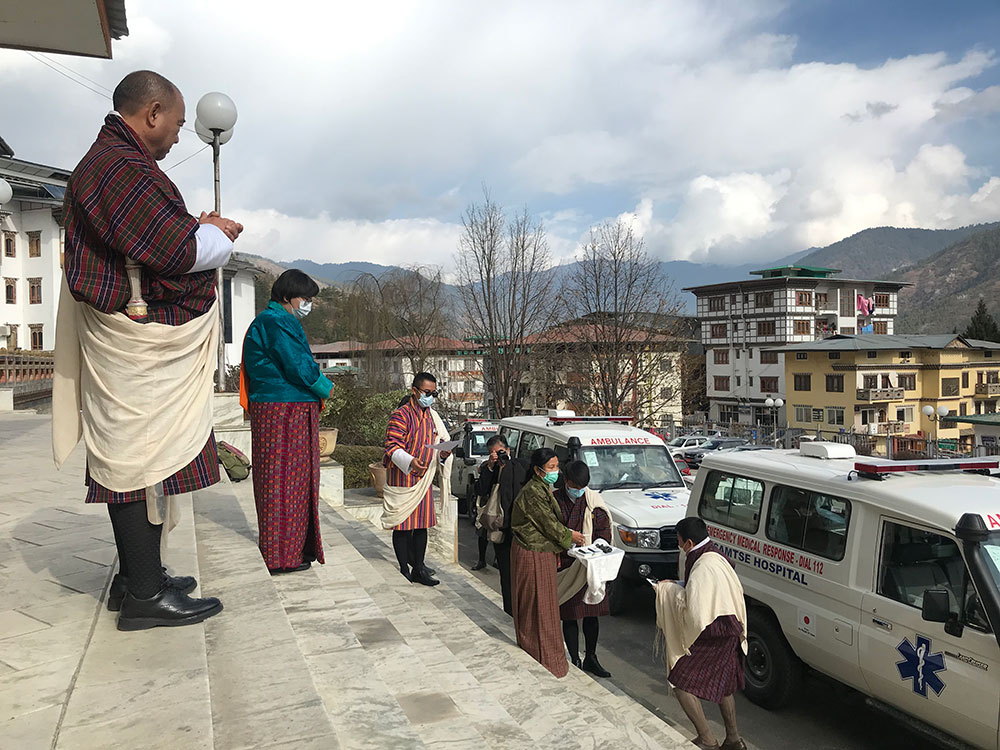Dorji Wangmo and Sonam Deki | Interns
The Ministry of Health (MoH) received 12 advanced ambulances from Japan yesterday, as a part of the Economic and Social Development Programme.
These advanced Toyota ambulances are expected to enhance the delivery of critical and emergency pre-hospital medical services in the country.
Health Minister Dechen Wangmo said, “These ambulances will improve the efficiency of the delivery of health services to the socially and economically disadvantaged and vulnerable population.”
She said that it would strengthen access to timely emergency medical needs, preventing many untimely deaths.
Health Minister Dechen Wangmo, Japan International Cooperation Agency Chief Representative Kozo Watanabe, and officials from the Ministry of Foreign Affairs and MoH attended the ceremony.
The Minister of Economic and Development at the Japanese Embassy in New Delhi, Shingo Miyamoto, and officials from Japan’s International Cooperation System (JICS) attended the ceremony virtually.
The ambulances will be deployed to strategic hospitals, referral hospitals, and primarily dzongkhag hospitals in Wangdue, Samtse, Dewathang, Paro, Trashigang, Damphu, Yebilaptse, Phuentsholing, and Gidakom, as well as Gelephu hospital, Mongar hospital, and Jigme Dorji Wangchuck National Referral Hospital.
Minister of Economics and Development, Shingo Miyamoto said, “The ambulances are capable of handling rugged terrain better than the normal ambulances, and can be used in remote areas too.”
The advanced ambulances have medical equipment that is not available in basic ambulances. These new ambulances are equipped with medical equipment like a cardiac monitor, venoscope, syringe pump, stair chair, electrocardiogram (ECG) machine, and a suction apparatus. Each ambulance cost around Nu 10 million, including the medical equipment.
Along with the 12 ambulances, the Social Development Programme includes 11 portable Ultrasonography (USG) units, which were delivered in March 2021, and six portable X-Ray machines, which will arrive in mid-2022.
The special orientation for the ambulance drivers and Emergency Medical Responders (EMR) was conducted on January 11.
The Health Minister conveyed a deep appreciation to the government and people of Japan.
As of today, there are 28 hospitals, 156 primary health centres, and 654 outreach clinics in Bhutan, and the total existing ambulances in the country is 118 excluding the 12 new advanced ambulances.


